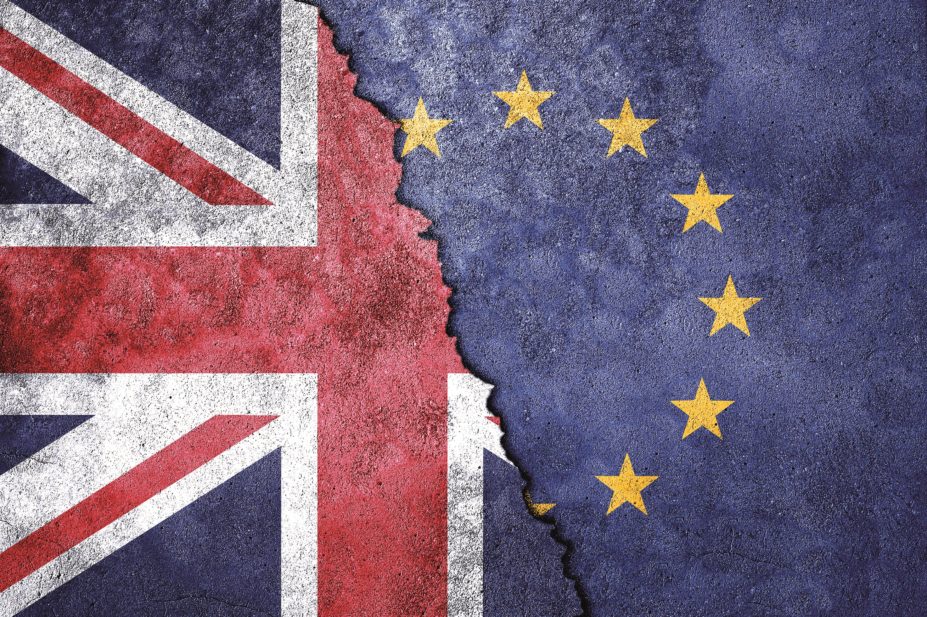
Shutterstock.com
To some, summer 2016 has been one of discontent. David Cameron has now laid to rest the one issue that dogged his term of office by holding the referendum many people dreaded. He asked the question, he weighed-in with all of his political might, got the wrong answer and left. They do say ‘ask a silly question…’.
The fallout from the UK’s referendum vote to leave the EU has been catastrophic. Annuity rates have suffered, the British pound fell, bank stocks tumbled, government bonds headed south, the UK’s credit rating has been downgraded to “negative” and there is potential for a recession. All this results in much uncertainty — a staple diet for negative investment decisions — and is ultimately bad for the economy.
No one can predict what will happen next. However, some things are certain: we have political chaos; the Labour Party is in ruins; we have a new prime minister without electoral mandate; the Conservative Party is in shock; the media is in conniption; the UK Independence Party had a resignation; and the nation is divided. Second, we cannot expect an extra £130m investment a week for the NHS any time soon, let alone the £350m promised during the referendum campaign, a pledge that everyone is suddenly distancing themselves from. And also, although George Osborne is no longer the UK chancellor of the exchequer and fiscal predictions of a surplus by 2020 have been scrapped, we’ll still need to argue for more community pharmacy funding and a U-turn on the imminent cuts announced by the Department of Health in December 2015.
The Royal Pharmaceutical Society (RPS) is heavily involved in European matters through the Pharmaceutical Group of the European Union (PGEU) and the International Pharmaceutical Federation (FIP), where we work with other countries to improve public health and to understand how EU laws and regulations will affect us. The nation is divided but pharmacy must remain united. The RPS will need to play a role in ensuring that Brexit does not jeopardise access to medicines. For example, it can act as a radar to pick up European initiatives that might benefit patients or monitor drug shortages and act to ensure that UK patients are not disadvantaged compared with other Europeans.
Experts say it could take longer for new drugs to become available in the UK because applications for UK licences would come after the European licence, owing to the smaller patient population in the UK, and because licensing of new medicines would have to be handled by a UK agency as well as a European agency – an expensive and time-consuming step.
The cost of medicines will increase if we fail to maintain free trade and the cost of parallel imports increases. Meanwhile, a weaker pound will mean we get less for more and there will be fewer savings to pass on to the NHS.
Leading players in the pharmaceutical industry tell us Brexit will harm the development of new medicines in the UK because of the potential breakdown of international collaboration between scientists, doctors and industry. Brexit also serves as a destructive distraction as great minds will now need to deal with the fallout rather than focusing on the future and progress.
EU funding for research and development has benefited the UK more than any other country and has supported medicines research across a whole range of diseases, including diabetes, cancer and dementia. There’ll now be a funding gap that will need to be filled as we persuade the global pharmaceutical companies to invest in and employ, research, develop, manufacture and export from the UK, rather than the EU. Unfortunately, leaving the EU doesn’t mean we can simplify the rules of professionalism or trade as most of the legislation that emanates from Europe will still apply as part of the conditions of entering into a free trade agreement.
In addition to the significant outlay in time and money as we rework our own UK legislation, there will be even more work around meeting EU expectations in order to trade and export to EU member states. We also need to understand how we can continue to benefit from the skills of the 3,500 pharmacists who have come to the UK from the EU/EEA. The good news is that healthcare is already devolved, with each European country doing its own thing, depending on the individual systems and incentives driving professional practice. So that will remain as now.
The RPS has to see beyond the nasty campaigns fought in the run up to the referendum. So far, both sides of the EU debate have largely predicated on the dishonest and the undeliverable. Whether we are better off as Her Majesty’s island or as part of a larger EU family, we need to ensure we still play a part in an outward-looking, flexible and collective Europe. When it comes to medicines, we cannot afford to be isolated.
You may also be interested in
Long service of members

Membership fees 2022
